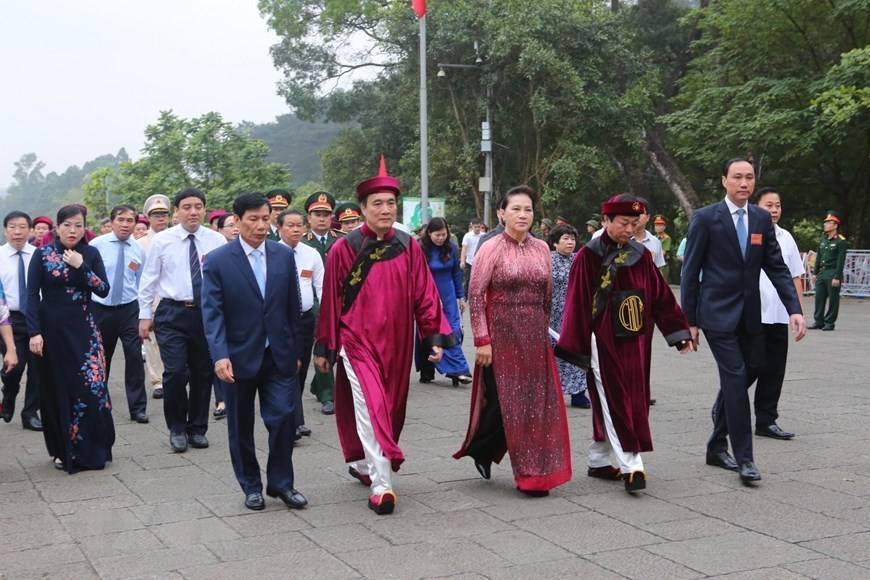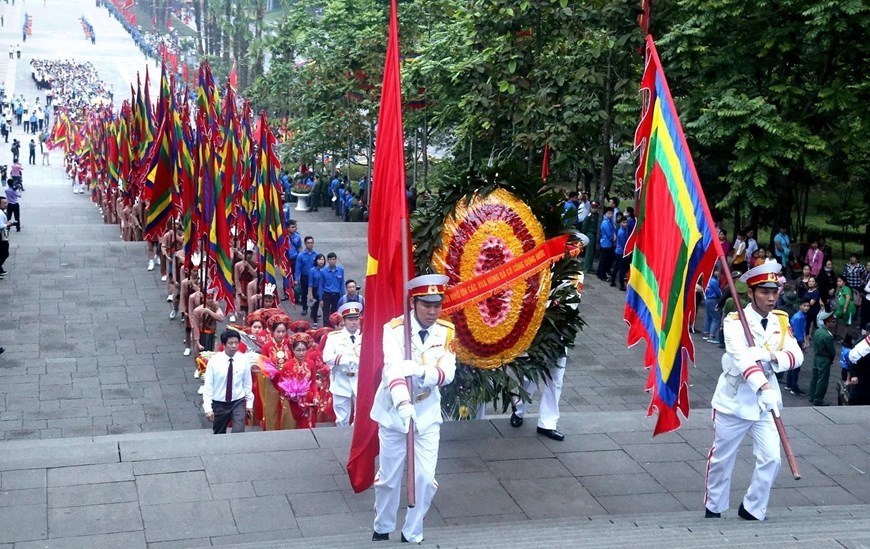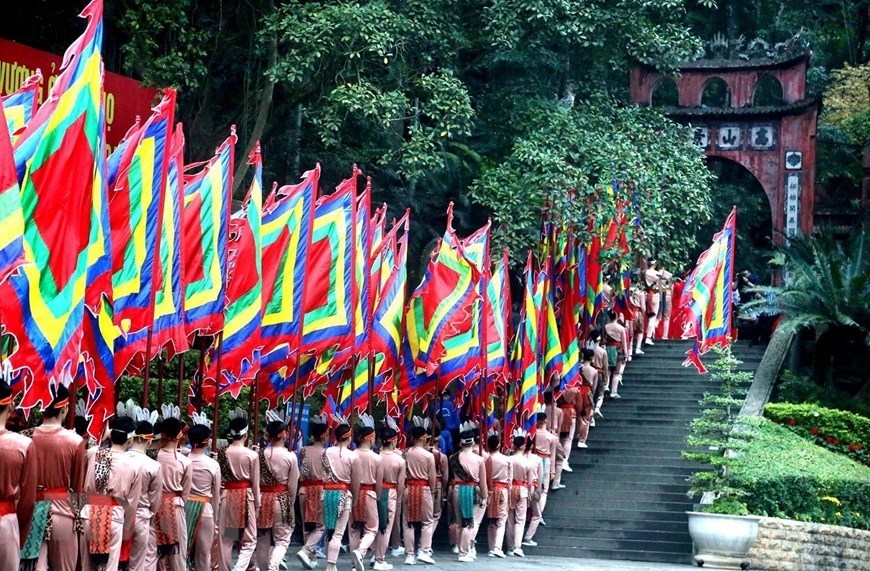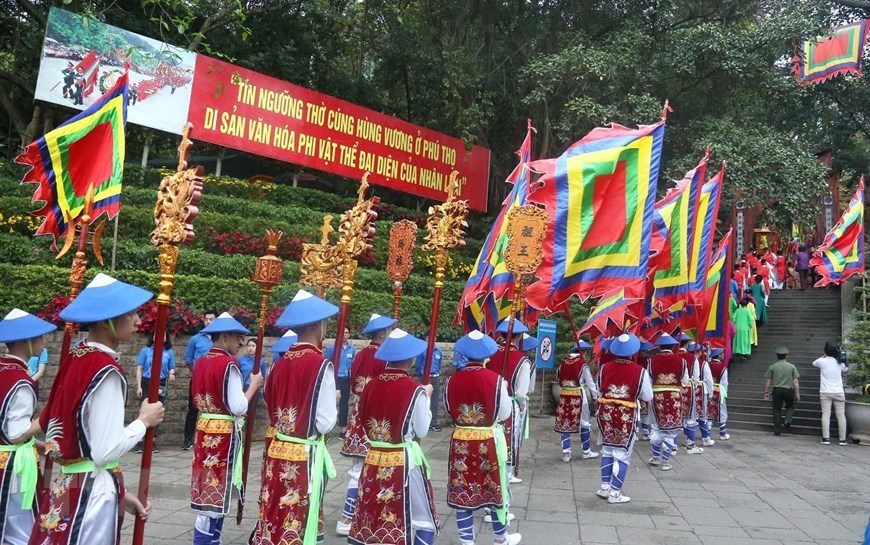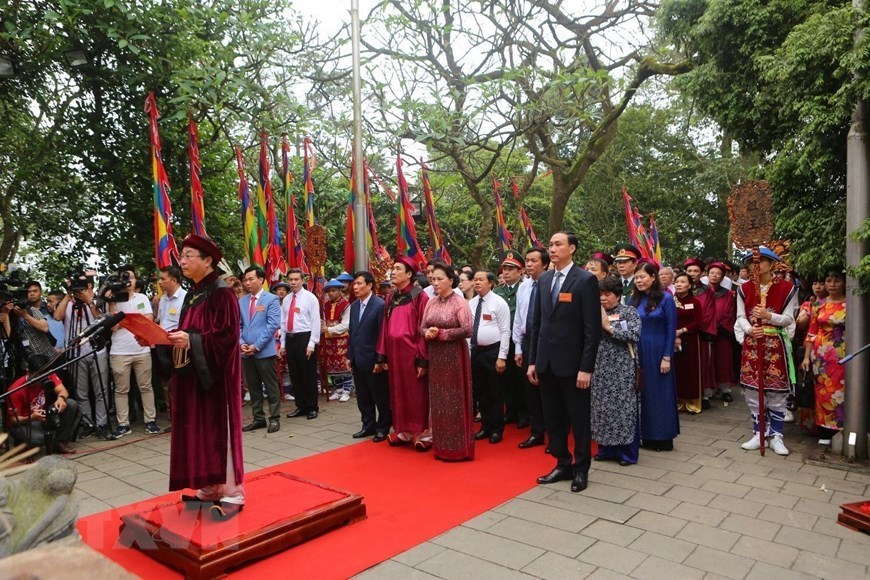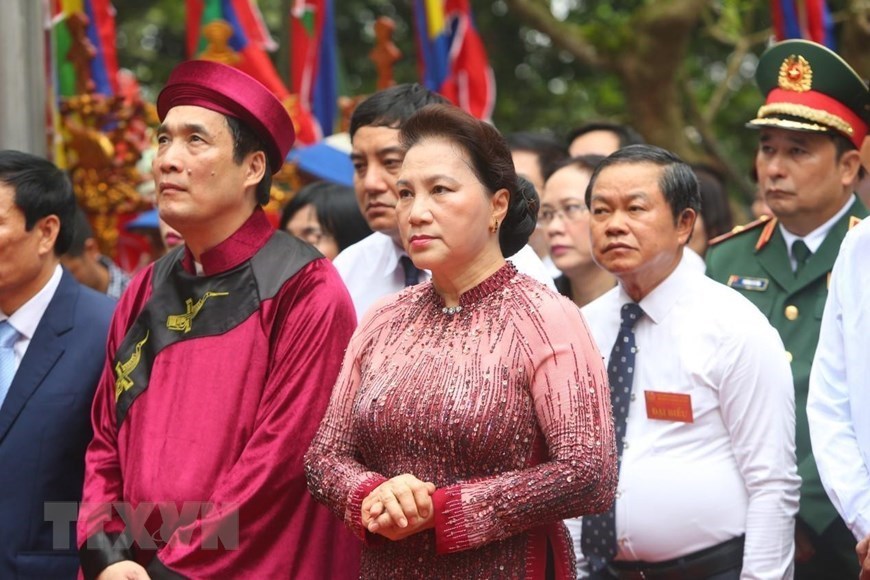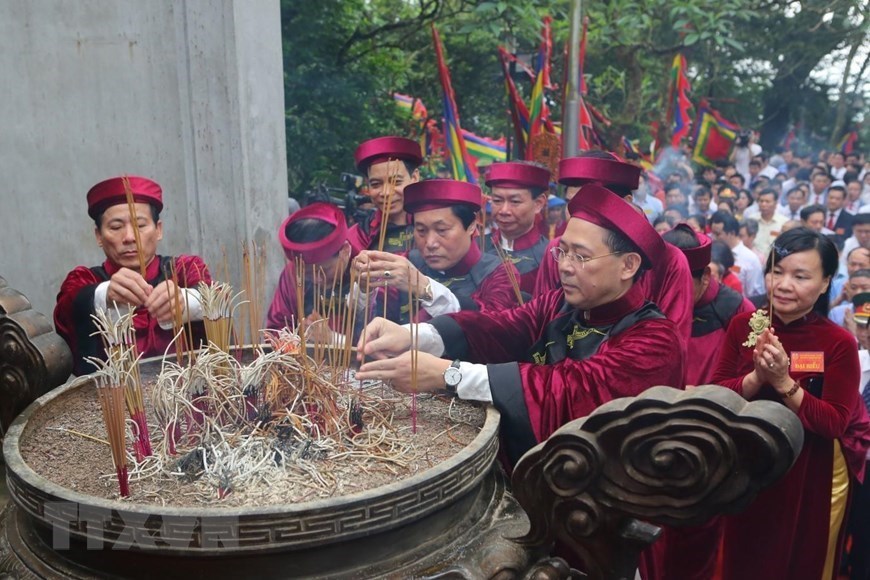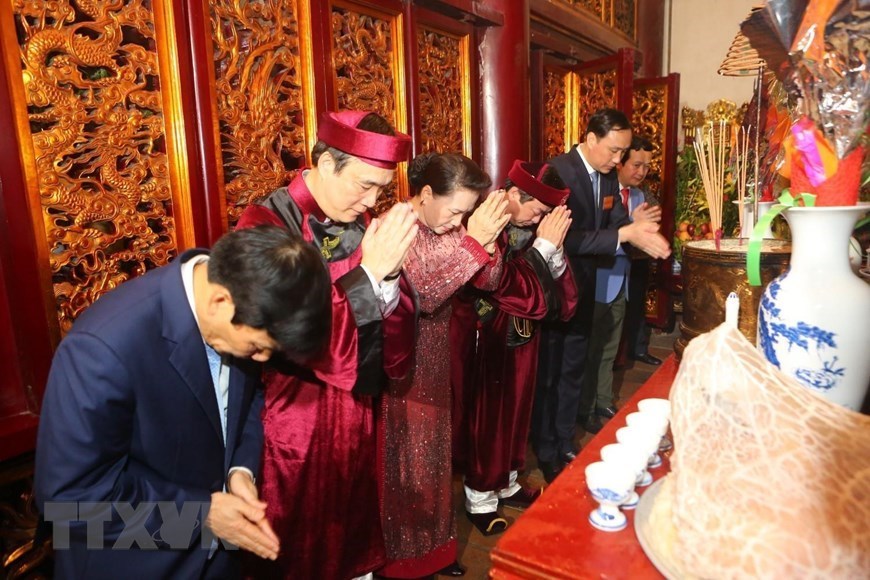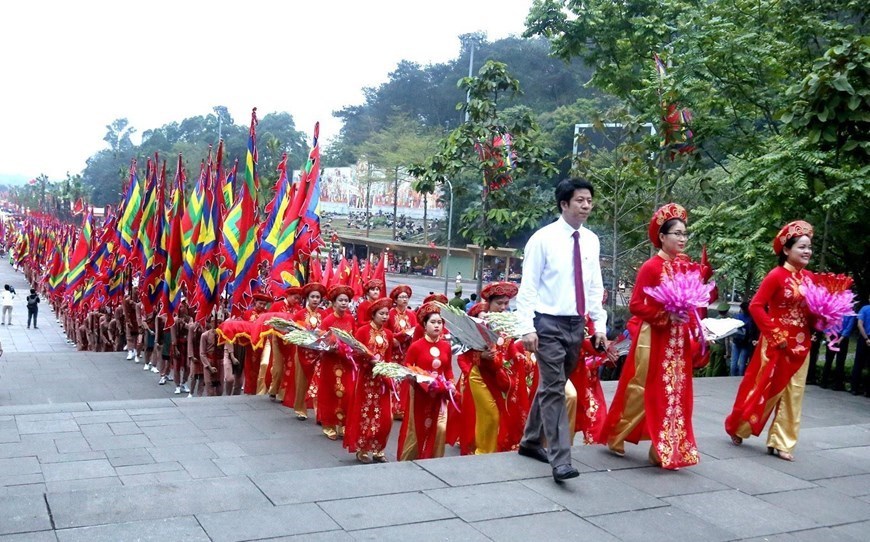 |
|
Incense offering ceremony is the most important part of the Hung Kings Temple Festival
National Assembly Chairwoman Nguyen Thi Kim Ngan, representatives of ministries and agencies, and provincial leaders attend the incense offering ceremony
Incense offering ceremony takes place at the Hung Kings Temple Relic Site on Nghia Linh Mountain
Incense offering ceremony is the most important part of the Hung Kings Temple Festival. It takes place at the Hung Kings Temple Relic Site on Nghia Linh Mountain
National Assembly Chairwoman Nguyen Thi Kim Ngan attends the incense offering ceremony
Incense offering ceremony is the most important part of the Hung Kings Temple Festival
National Assembly Chairwoman Nguyen Thi Kim Ngan attends the incense offering ceremony
|
Hung Kings’ death anniversary commemorated nationwide
An incense offering ceremony was held in the northern midland province of Phu Tho on April 14 (or the tenth day of the third lunar month) to commemorate the death anniversary of Hung Kings, the legendary founders of the nation.
Attended the event were National Assembly Chairwoman Nguyen Thi Kim Ngan, officials from the Communist Party of Vietnam (CPV) Central Committee, and leaders of ministries, departments and localities, as well as Vietnamese people at home and expatriates.
The death anniversary of Hung Kings has long been considered a significant day of the whole nation, illustrating the spirit of solidarity and tradition “when drinking water, remember its sources”.
The participants prayed for national peace, prosperity, and strong development.
Chairman of the provincial People’s Committee Bui Van Quang highlighted the significance of the day as well as the remarkable achievements that the whole Party, army and people have gained in the cause of national reform, integration, and development.
After offering incense at Thuong Temple, NA Chairwoman Ngan and delegates laid wreaths at Hung Kings tomb.
Phu Tho along with the Mekong Delta city of Can Tho, the central province of Nghe An, and the northern province of Son La representing different regions across the country has actively carried out plans in celebration of the death anniversary of Hung Kings and Hung Kings Temple Festival in 2019.
Various kinds of activities have been taking place during the day such as palanquin processions, contests to make “Banh Chung” (square glutinous rice cake) and “Banh Day” (white, flat, and round glutinous rice cake) – which were created by the 18th prince of Hung King some 3,000-4,000 years ago – symbolysing the “earth” and the “sky”, respectively, and art and cultural programmes.
A ceremony offering incense and flowers to Hung Kings was held the same day in Ho Chi Minh City with the presence of Politburo member Nguyen Thien Nhan, Secretary of the municipal Party’s Committee.
Legend has it that Lac Long Quan (real name Sung Lam, son of Kinh Duong Vuong and Than Long Nu) married Au Co (the fairy daughter of De Lai). Au Co then went on to give birth to a pouch filled with one hundred eggs, which soon hatched into a hundred sons, believed to be Vietnam’s ancestors. However, soon thereafter, Lac Long Quan and Au Co separated. Lac Long Quan went to the coast with 50 of the children, while Au Co went to the highlands with the rest.
Their eldest son was made king, who named the country Van Lang and set up the capital in Phong Chau (nowadays Viet Tri city, Phu Tho province), beginning the 18 dynasties of the Hung Kings.
The kings chose Nghia Linh Mountain, the highest in the region, to perform rituals devoted to rice and sun deities to pray for healthy crops.
To honour their great contributions, a complex of temples dedicated to them was built on Nghia Linh Mountain, and the tenth day of the third lunar month serves as the national commemorative anniversary for the kings.
The worshipping rituals of the Hung Kings was recognised as a UNESCO Intangible Cultural Heritage of Humanity in 2012.-VNA
